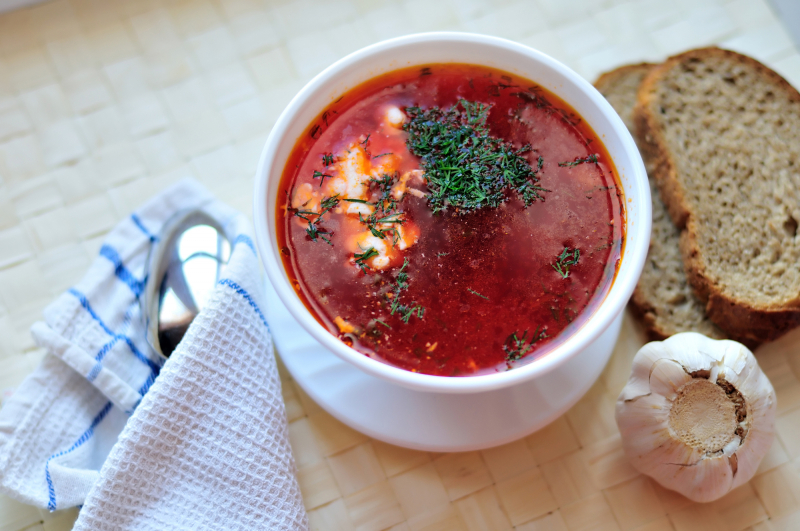The thing about borscht – a beetroot soup with Eastern European roots – is that you can’t just make a small pot. It doesn’t work like that. It’s designed to last for a while and feeds a crowd (or just you alone over a few days) and some claim it gets better as the taste mellows overnight.
It’s not technically just a Russian staple. My borscht-making skills came from a Ukrainian friend who one day showed up in my kitchen with all the necessary ingredients and asked for my largest pot. Legend has it that the recipe actually came from what is now Ukraine and was originally made without the beets, which reached the Slavic world by the mid-16th century. The red beetroot soup as we know it is often pinned in time to the end of the 17th century and attributed to either the Don Cossacks, fearless cavalrymen serving in the Russian Army, or Zaporozhian Cossacks, serving in the Polish army.
Some make it vegetarian, using just vegetable stock. Some make it hearty enough for "a spoon to stand upright". It’s up to you, but here’s the basic recipe.
Ingredients:
-
1 kg of beef (if using)
-
1 small white cabbage
-
3-4 medium beets
-
1-2 onions
-
2-3 medium carrots
-
2-3 medium potatoes
-
1 small can tomato paste
-
1 can diced tomatoes
-
Olive oil
-
Fresh dill and/or parsley
-
Sour cream
-
Garlic (optional)
-
If you’re using beef stock, get a fatty cut with bone, like chuck or short ribs. Add one carrot and half an onion, cover with about two liters of water, bring to a boil and let it simmer for about two hours.
-
In a tall, heavy pot, pour a few tablespoons of olive oil and add diced onions. Let them turn translucent, then add the tomato paste and let it cook for a minute or two.
-
Peel and grate the beets and carrots. Peel and dice the potatoes. Shred the cabbage.
-
Once your stock is ready, pour it into the tall pot with the onions and tomato paste and add all the vegetables, including the diced tomatoes. Let everything simmer for about half an hour.
-
Serve with fresh herbs and sour cream.
Now, when people ask you if you eat borscht all the time while you’re in Russia, you can offer them a wholehearted yes.




